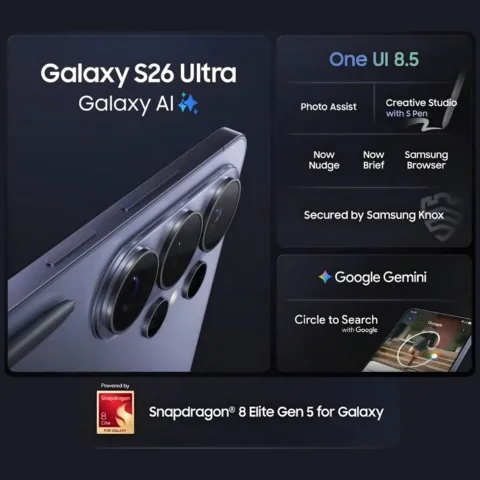 Reporting from Beijing for Global Mobile and Internet Conference VIP Welcome Dinner, where a few of China’s experts on mobile and internet took the stage and share on how foreign tech companies succeed in China.
Reporting from Beijing for Global Mobile and Internet Conference VIP Welcome Dinner, where a few of China’s experts on mobile and internet took the stage and share on how foreign tech companies succeed in China.
As we know, China is famous for its market loyalty where huge multinational companies like Yahoo, Microsoft and Google have been given a hard time penetrating the market. In fact, none of these tech multinational companies are #1 on their categories in China. All categories, be it e-commerce, social network, search engines, etc are lead by a local product. Baidu beats Google, QQ beats Facebook, Ushi.cn beats LinkedIn, Alibaba beats eBay and the list go on.
The panel discussion was particularly interesting, with panel speakers from Microsoft MSN China, Zynga China, Baidu, Ushi.cn, Paul Hastings Law Firm and Alving Wang. The panel discussion was talking about the phenomenon where multinational companies giving their best effort to penetrate the market, and given the rumor that Facebook is actually looking a local partner in China to enter the market.
The question is of course, why look for partners? Why not just enter the market like any other country?
Apparently, entering China market without seriously strong local team is a recipe for disaster. Panelists give two alternatives for foreign companies trying to expand to Chinese market :
Build a strong local team
Most multinational companies usually spend a 2-3 months in the market to elect a Country Manager and outsource the rest of their local hiring process to headhunters. This doesn’t work. The panelists recommend spending a lot of time in the field, observing the market while looking for the perfect candidate to partner with.
China is a start-from-scratch market for foreign companies, means that even multinational companies like Facebook and Google have to start from zero in acquiring user in China because Chinese market simply won’t be impressed by foreign brand. When Google entered the market carrying the already-huge brand with such “arrogance”, the Chinese market wasn’t impressed and choose local competitor Baidu instead.
Kaiser Kuo from Baidu said that Google should’ve taken more time to study the market before making instant decision and moving too fast. Multiply is currently executing this strategy in Indonesia by hiring lots of local talents and to expand the market, but again the team’s strength for local knowledge and execution is still yet to be proven.
Establish strong partnership
MSN China, Yahoo, and even Groupon is currently partnering with local companies to enter the Chinese market. It’s not that they won’t give out the effort, but partnerships (mainly Joint Venture) is considered the best way to enter huge and rather-closed market like China. In Indonesia, we have Rakuten who partners with MNC Group and also Alibaba whose (rumor has it) looking for partners to start operation in Indonesia.
In China, some industry sectors are regulated by the government in order to protect the industry from foreign domination, and the Chinese mobile/internet industry is one of the most heavily guarded sector. This is probably why Joint Venture works best in China.
But apparently, some foreign companies (not just tech) failed horribly while applying this strategy to enter China. As MSN China’s Anderson Liu told the audience that some companies failed to choose the best trustable partner in China as an extension for their business. It is important to investigate the entity and individual before companies decide to partner with them.
—
As I observe this panel discussion more and more, I come up with several key values that I think also applicable for startups in Indonesia. Indonesia is probably 5-7 years behind China, in terms of internet market and industry maturity, so I think we can learn a lot from China.
First thing that I would like to point out is that local companies have a huge advantage in terms of market knowledge compare to foreign companies. This is a head start, although can easily be overlapped if foreign companies successfully recruit the best local people. But one thing about foreign companies, no matter how local they are they can’t move as fast as local companies do. Indonesia (just like China) is a unique market, and sometime it forces foreign companies to change their core values in order to gain traction in Indonesia. And most of them having a difficult time adapting.
The second thing I learned is about scaling and localization. In China, there’s over 2000 Groupon-clones and dozens of groupon-clone aggregator and they all live together in peace and profitable. How could this happen? One small example, each city has its own groupon clone offering a very localized content for specific niche users. So far, Indonesian tech-startup companies are still focused in Jakarta, maybe some in Bandung, Jogjakarta and Surabaya but that’s just a small fraction of the Indonesian internet market. There are so many unserved market throughout the rural areas of Indonesia, with buying power (regardless how low it is). I think Indonesian startups can learn from Chinese startups on serving the whole market rather than focusing on large cities head-to-head with a bunch of competitors.
Stay around for more event reports and thoughts as I attend the conference tomorrow and take the stage for a panel discussion on emerging markets with experts from China, Russia, India and Singapore.
Disclosure: DailySocial is one of the event’s media partner and Rama Mamuaya will take the stage for panel discusion, see this link for schedule.











Interesting and informative article that clearly demonstrates the value of knowing your local market and spending time to understand your customers, end result if you don’t, misery.
Interesting and informative article that clearly demonstrates the value of knowing your local market and spending time to understand your customers, end result if you don’t, misery.